How to Install Keyboard Driver for Windows 10
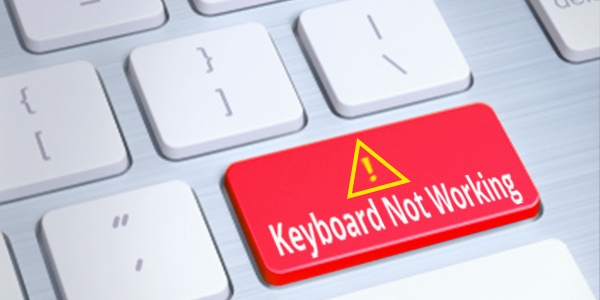
If you've recently upgraded to Windows 10 and now your keyboard isn't working, you're not alone. Many other Windows 10 users are reporting the same problem, especially after installing the KB4074588 update since February, 13, 2018.
And fortunately, there's a solution. Here are 5 options to try. You may not need to try them all. Just work your way down the list until you find the one that fixes the problem.
- Check your USB port is working
- Adjust your keyboard settings
- Reinstall your keyboard driver
- Update your keyboard and USB drivers (recommended)
- Switch to ChromeOS
Method 1: Check your USB port is working
Sometimes a USB port can just stop working when you upgrade to a new version of Windows. Usually it's because of a driver problem. You should always check for this problem first.
Fortunately it's easy to test: simply unplug the keyboard from the USB port and plug in another USB device – like a mouse or an external hard-drive. If that device doesn't work either, the USB port itself is the problem, and you should skip straight to Method 4. If the device you just plugged in does work, then continue to Method 2.
Method 2: Adjust your keyboard settings
Windows has a setting, called Filter Keys, that allows you to control how it deals with accidental repeated keystrokes. Unfortunately, if turned on, this setting has been known to cause some keyboards to stop working in Windows 10. So you should check if it's turned on. If it is, you should turn it off and see if that resolves the problem.
1) On your PC desktop, click the Action Center icon in the lower-right corner and click All settings.
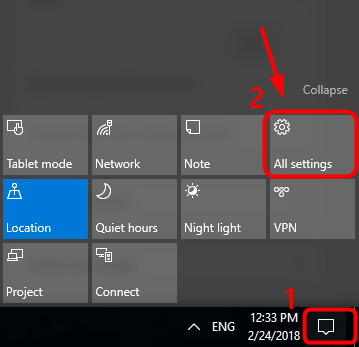
2) Click Ease of Access.
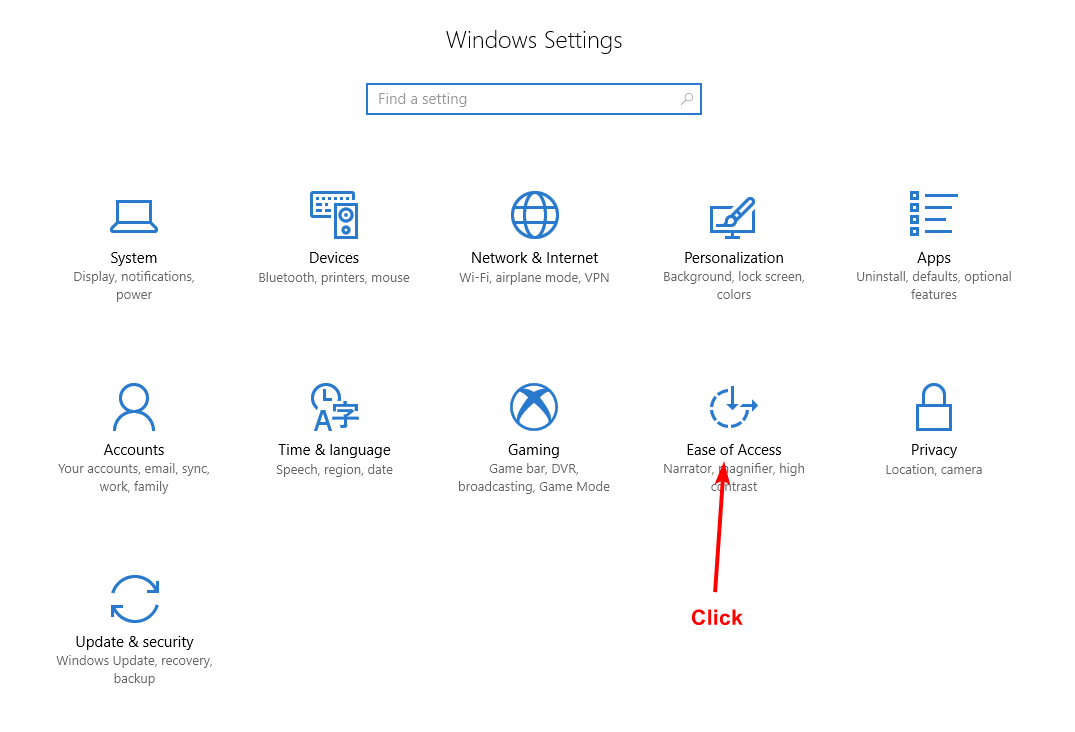
3) Click Keyboard.
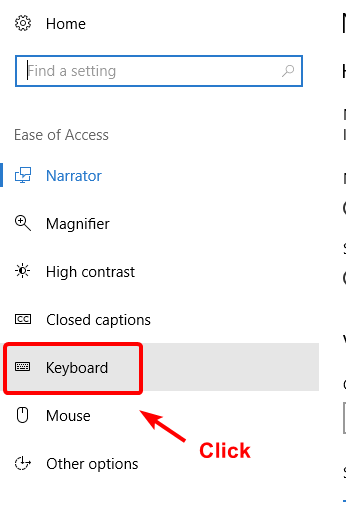
4) Ensure Filter Keys is OFF, and close the window.
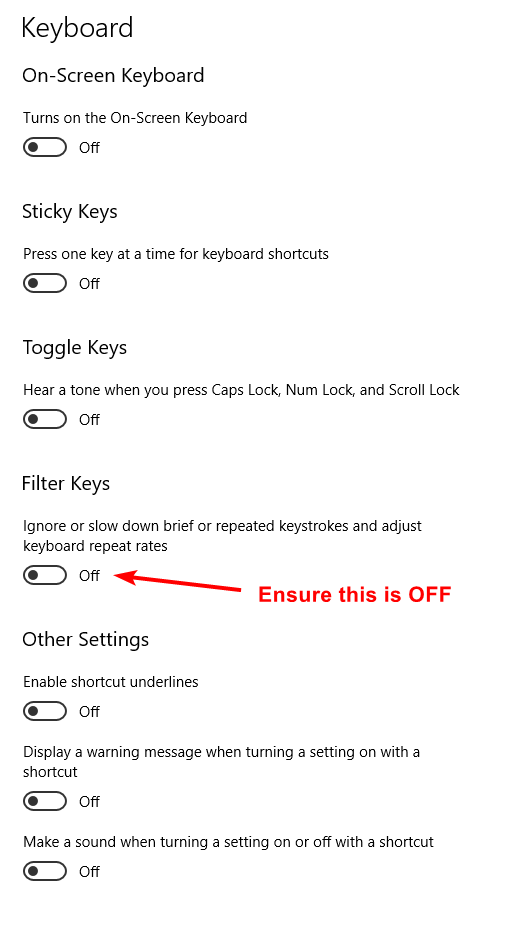
Method 3: Reinstall your keyboard driver
If your keyboard driver has developed a fault, your keyboard may stop working. To fix it:
1) Right-click the Start button, then click Device Manager.
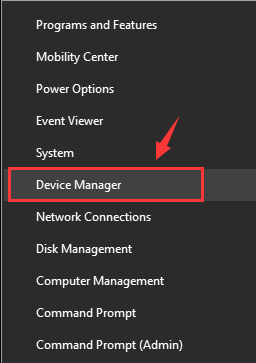
2) Expand Keyboards then right-click Standard PS/2 Keyboard and click Uninstall.
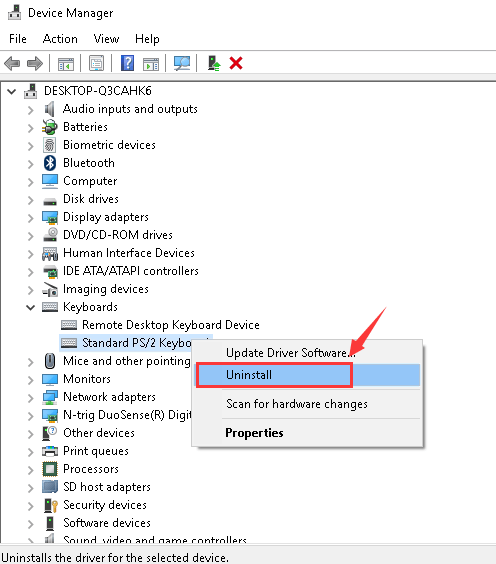
3) When prompted to confirm, click OK.
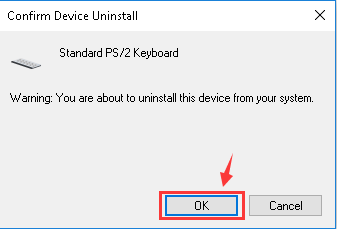
4) Restart your computer after the uninstall. If the problem persists, it's likely that your driver is outdated, rather than faulty, and you should try Method 4 below.
Method 4: Update your keyboard and USB driver (recommended)
One of the most common causes of an unresponsive keyboard is an outdated keyboard or USB driver.
There are two ways you can get the right drivers for your keyboard and USB port: manually or automatically.
Manual driver update – You can update your drivers manually by going to the manufacturer's website and searching for the most recent correct driver. Note that for your USB driver, you may need to try both the manufacturer of your PC and also the manufacturer of your USB port's chip set. If you don't have the time, patience or computer skills to update your drivers manually, you can, instead, do it automatically with Driver Easy.
Automatic driver update – Driver Easy will automatically recognize your system and find the correct drivers for both your mouse and your USB port. You don't need to know exactly what system your computer is running or who all the manufacturers are, you don't need to risk downloading and installing the wrong driver, and you don't need to worry about making a mistake when installing. You can update your drivers automatically with either the FREE or the Pro version of Driver Easy. But with the Pro version it takes just 2 clicks (and you get full support and a 30-day money back guarantee):
1) Download and install Driver Easy.
2) Run Driver Easy and click Scan Now button. Driver Easy will then scan your computer and detect any problem drivers.
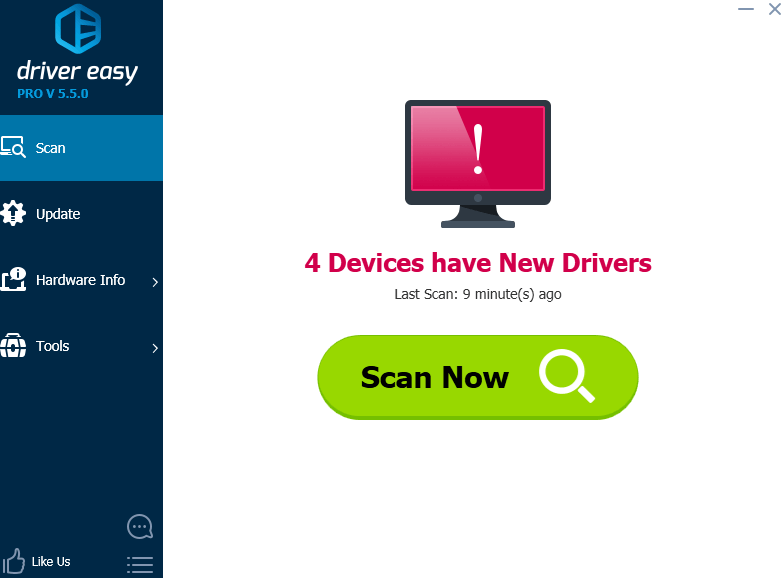
3) Click the Update button next to the flagged keyboard (or USB device) to automatically download and install the correct version of it (you can do this with the FREE version).
Or click Update All to automatically download and install the correct version of all the drivers that are missing or out of date on your system (this requires the Pro version – you'll be prompted to upgrade when you click Update All).
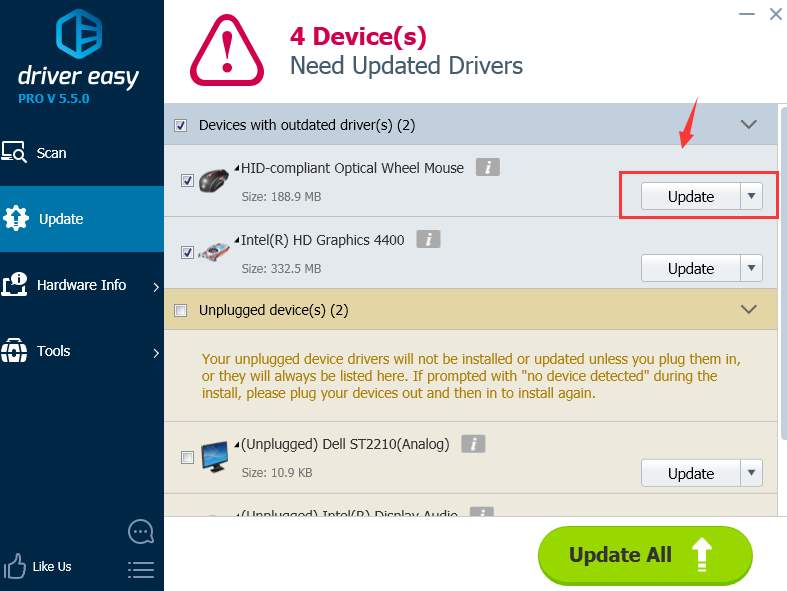
Method 5: Switch to ChromeOS
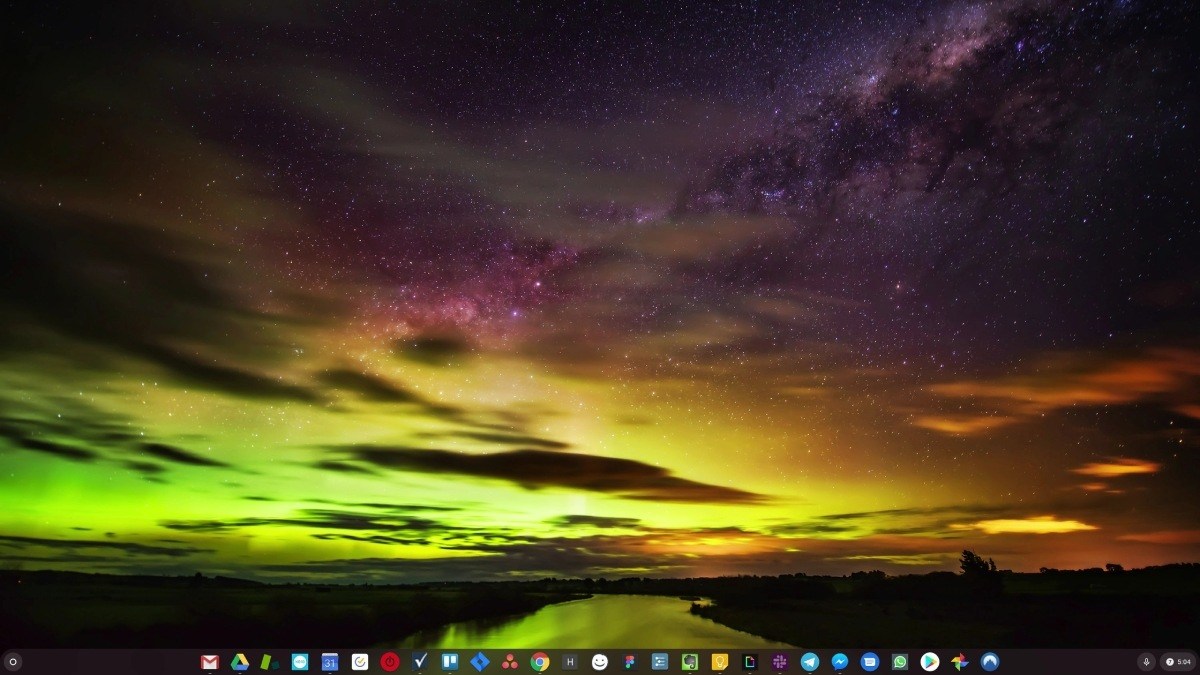
Windows is a very old technology. Sure, Windows 10 is relatively new, but it's still just the latest iteration of a decades-old operating system, designed for a bygone era (pre-internet).
Now that we have the internet, fast connection speeds, free cloud storage, and endless web apps (like Gmail, Google Docs, Slack, Facebook, Dropbox and Spotify), the entire Windows way of doing things – with locally installed programs and local file storage – is totally outdated.
Why is that a problem? Because when you're constantly installing uncontrolled third-party programs, you're constantly opening the door to viruses and other malware. (And Windows' insecure permission system compounds this problem.)
Plus the way Windows manages installed software and hardware has always been a problem. If your computer shuts down unexpectedly, or a program installs, uninstalls or updates incorrectly, you can get 'registry' corruptions. That's why Windows PCs always slow down and become unstable over time.
Also because everything's installed and saved locally, it doesn't take long before you run out of disk space, and your disk gets fragmented, which makes everything even slower and more unstable.
For most people, the simplest way to solve Windows problems is to ditch Windows altogether, and switch to a faster, more reliable, more secure, easier to use and cheaper operating system…
Google ChromeOS.
ChromeOS feels much like Windows, but instead of installing heaps of programs to email, chat, browse the internet, write documents, do school presentations, create spreadsheets, and whatever else you normally do on a computer, you use web apps. You don't need to install anything at all.
That means you don't have virus and malware problems, and your computer doesn't slow down over time, or become unstable.
And that's just the start of the benefits…
To learn more about the benefits of ChromeOS, and to see comparison videos and demos, visit GoChromeOS.com.
How to Install Keyboard Driver for Windows 10
Source: https://www.drivereasy.com/knowledge/keyboard-not-working-on-windows-10-solved/